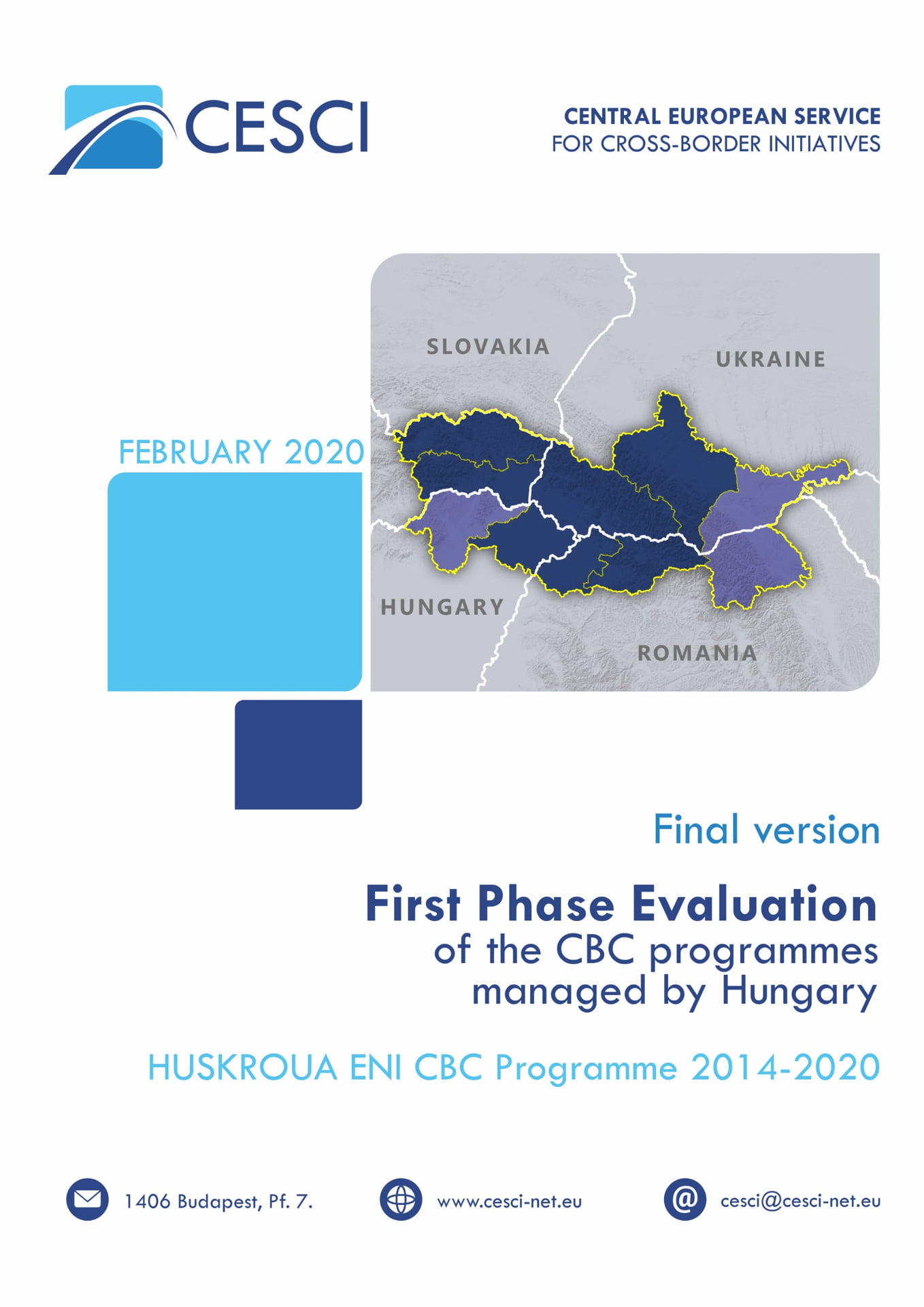
- Author: CESCI
- Territory: Carpathian space
- Year of publication: 2020
- Language: English
- Number of pages: 110
First Phase Evaluation of the Hungary-Slovakia-Romania-Ukraine ENI Cross-Border Cooperation Programme 2014-2020
A Magyarország-Szlovákia-Románia-Ukrajna ENI Határon Átnyúló Együttműködési Program félidei értékelése (2014-2020)
The first phase evaluation of the Hungary-Slovakia-Romania-Ukraine European Neighbourhood Instrument Cross-border Cooperation Programme was designed to fulfil the on-going (mid-term) evaluation tasks. In February 2018, the Managing Authority of the Programme (the MA, operated that time in the Prime Minister’s Office of Hungary) as the institution responsible for the coordination of the on-going (mid-term) evaluation, invited the Central European Service for Cross-Border Initiatives (CESCI) to deliver the report on the current status of the Programme.
According to the monitoring and evaluation plan, the on-going (mid-term) evaluation had to focus on the following subjects:
- programme management,
- project application, selection procedures,
- communication.
Due to the fact that the implementation of the projects could not start up to the evaluation period, the pre-defined assessment could not be thoroughly performed. As a result, the evaluators had to limit their assessment to the following information resources:
- documents related to the Programme, to the first two calls and the materials documenting the functioning of the programme,
- interviews conducted with representatives of the programme bodies,
- an online survey addressing the applicants of the first two calls,
- existing statistical data.
Key findings of the evaluation
- At the current stage, it is impossible to thoroughly assess the effectiveness, efficiency and impacts of the programme
- The cross-border character of the programme is very weak – but it is justified by its additional missions (such as the Euro-Atlantic integration of Ukraine)
- The four-country scope is considered as a complicating factor
- The Programme is not visible enough
- The timely completion of the programme is not endangered
CESCI has extended the evaluation document with a list of recommendations. The recommendations summarise the lessons of the evaluation concerning two major topics:
- How the programme procedures can be accelerated and improved?
- How can the next programme be built upon the results of the evaluation?

